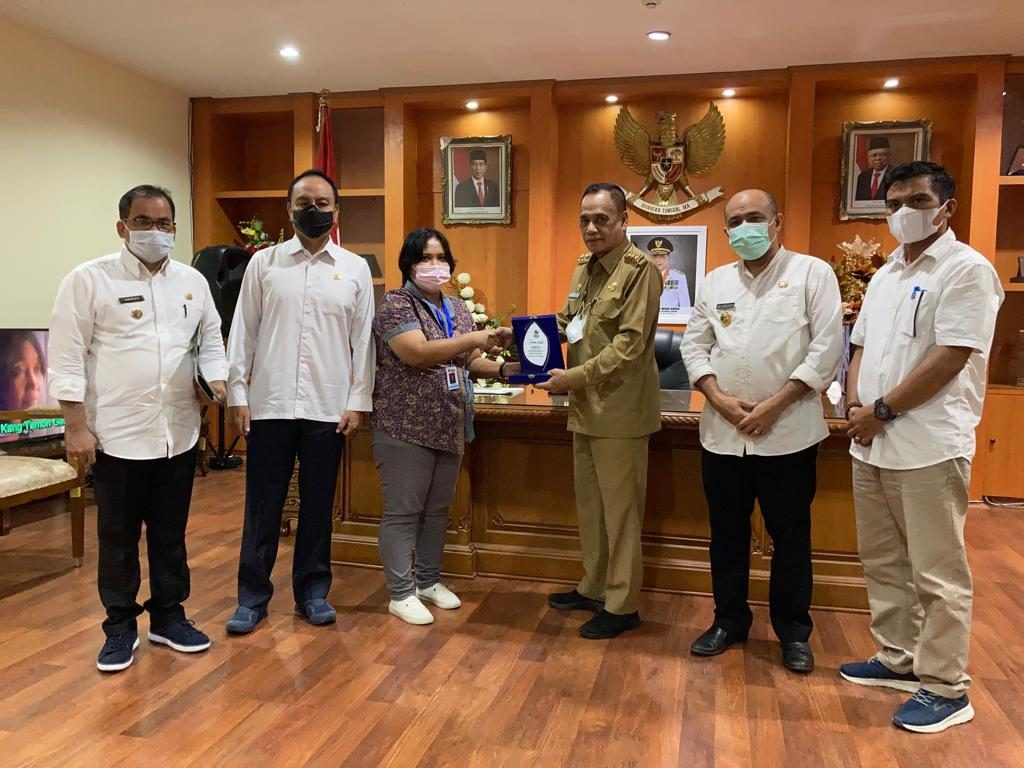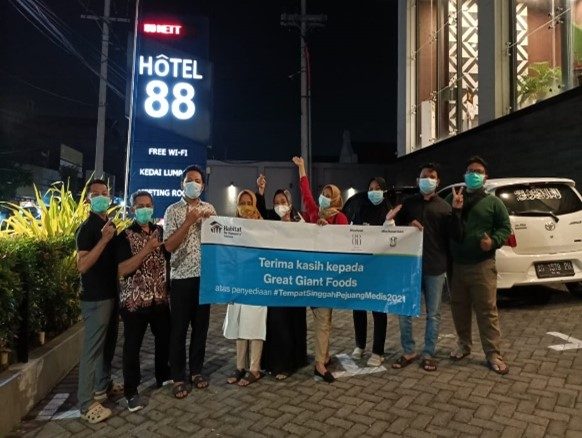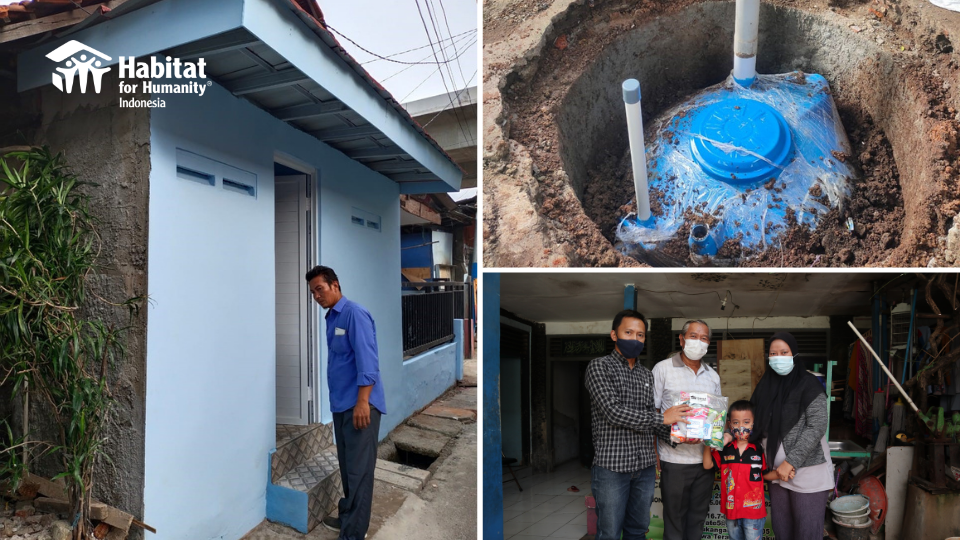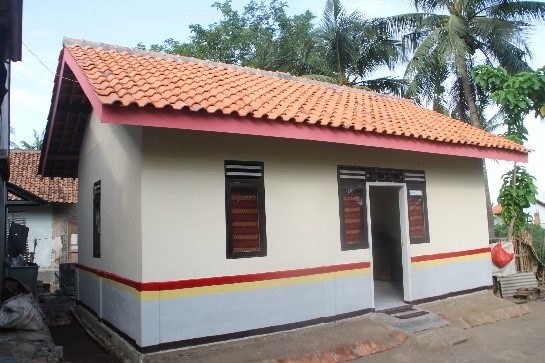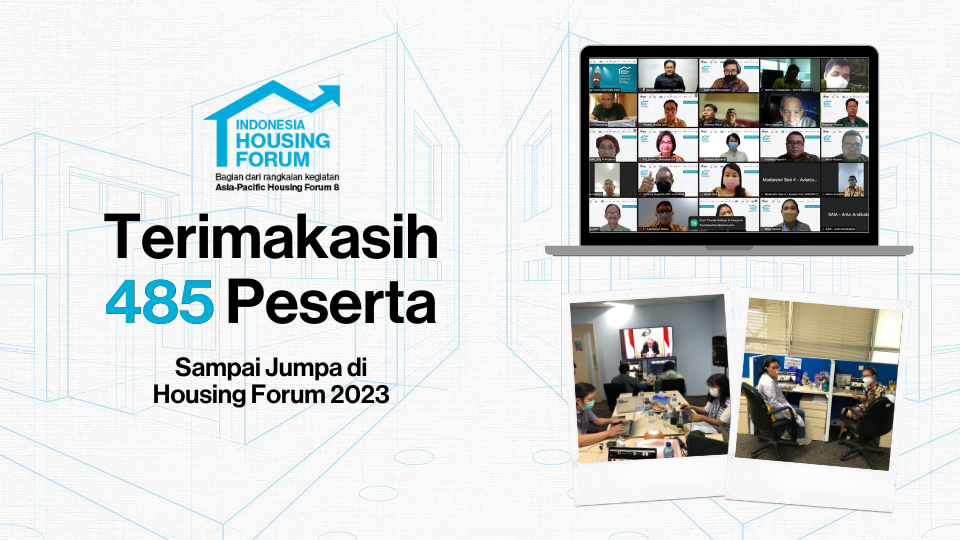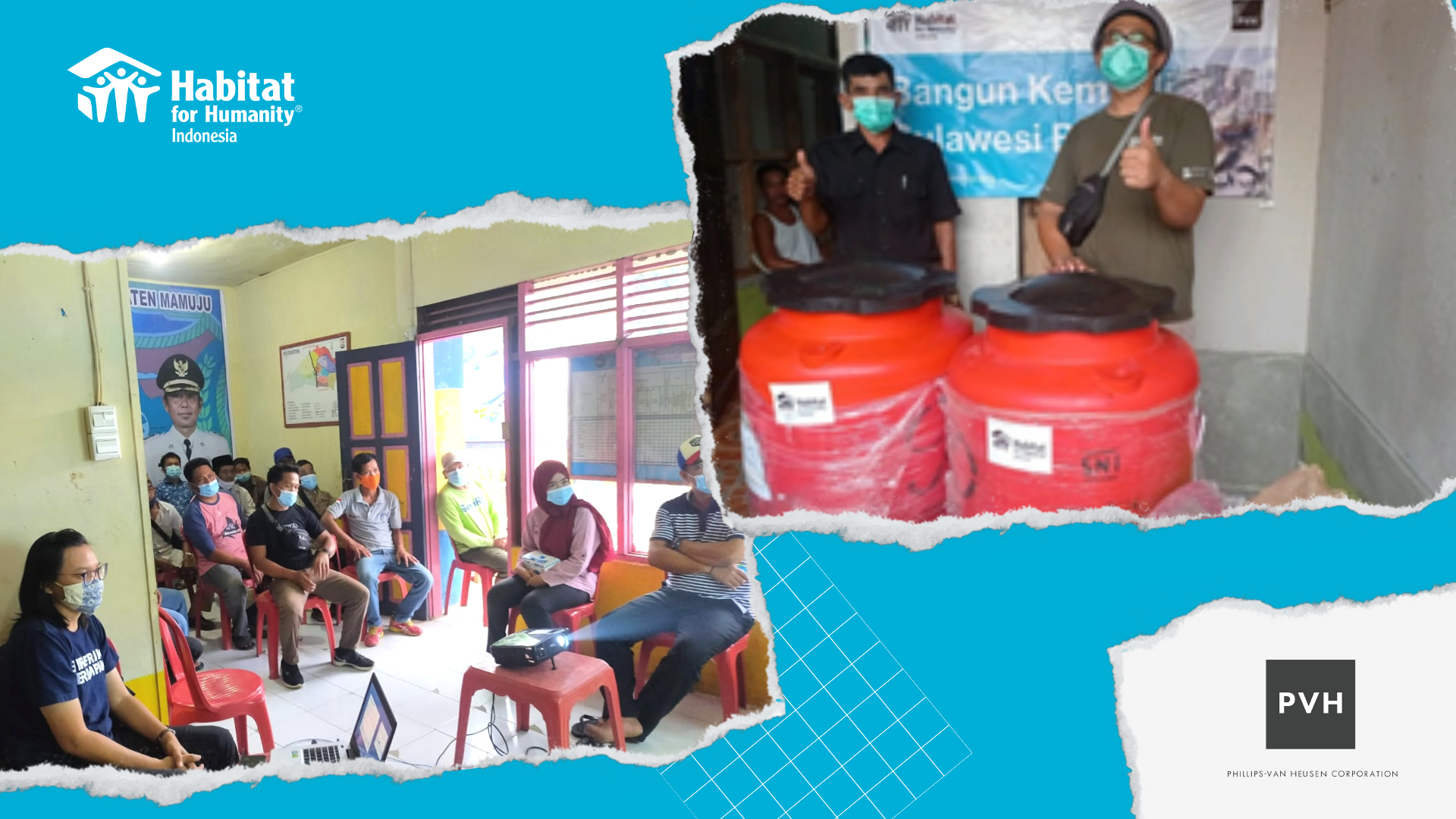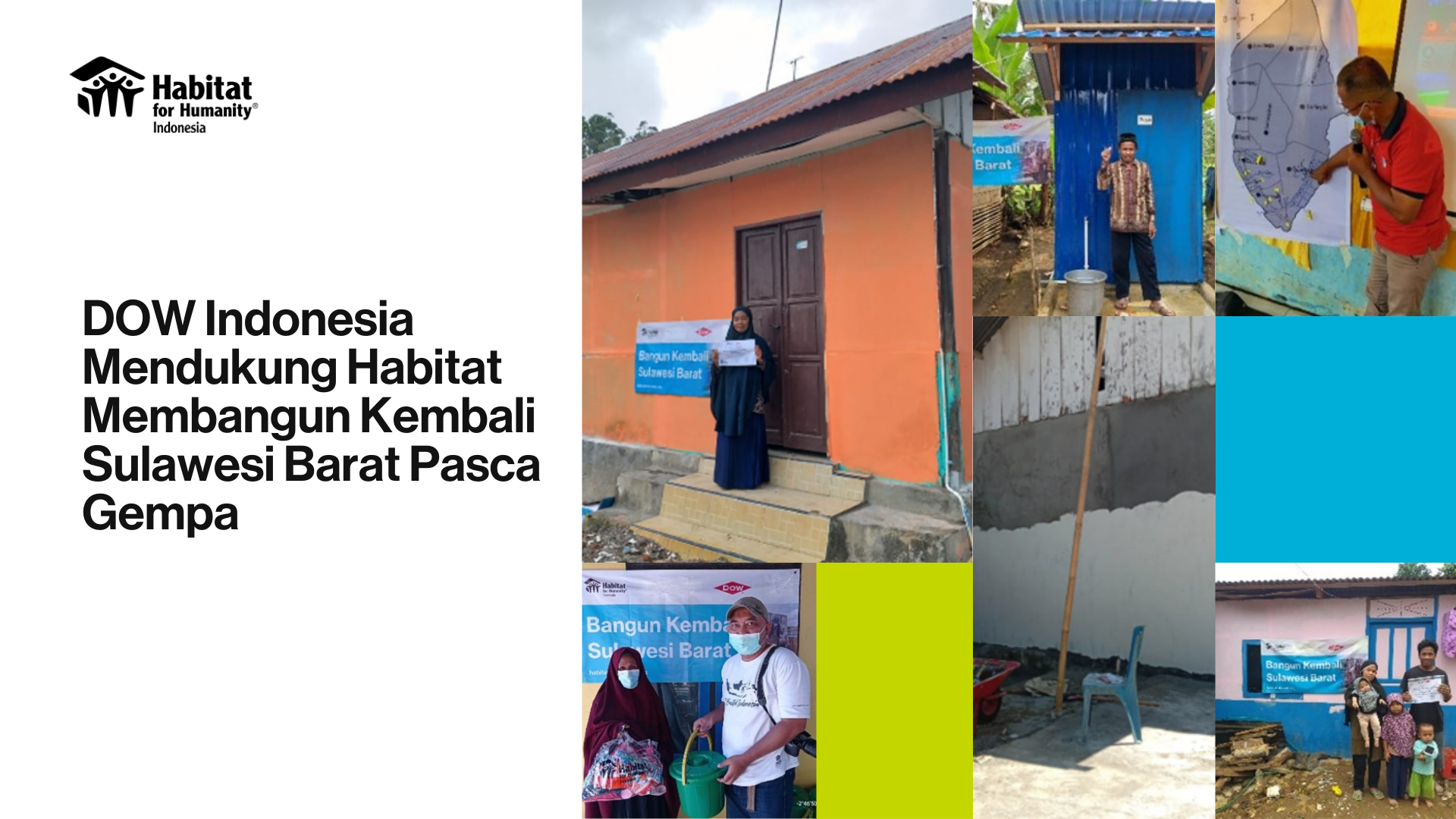Central Sulawesi Provincial Government Appreciates Habitat Indonesia Help Disaster Victims
Palu City, Central Sulawesi provincial government appreciates Habitat for Humanity Indonesia that has helped more than six thousand families who were hit by the earthquake, tsunami, and liquefaction on September 28th 2018, in Central Sulawesi.
“We appreciate Habitat Indonesia because it had brought changes to raise the disaster-impacted families during three years,” said Deputy Governor of Central Sulawesi, Mamun Amir in Palu.
Mamun Amir says that Habitat for Humanity Indonesia had helped the government provide temporary shelters, permanent houses, schools, and other helps.
Habitat for Humanity Indonesia had given help through a disaster response program and had served 6.248 people in Palu, Sigi, and Donggala.
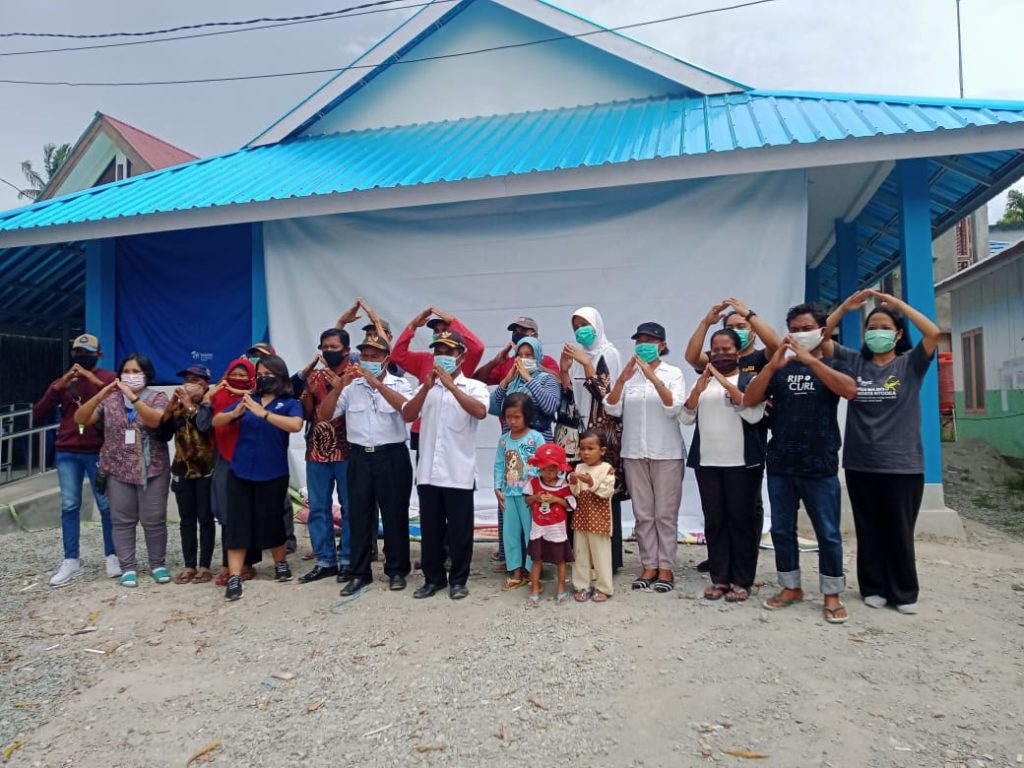
“Habitat had built 1.039 temporary shelters, 191 permanent houses in Sigi”, He said.
Habitat Indonesia involves the habitants to implement the building and economic program past the disaster. “Not only giving help but also train the habitants,” explains Mamun Amir.
Meanwhile, the national director of Habitat for Humanity Indonesia, Susanto, says that Habitat for Humanity Indonesia had helped more than six thousand disaster-impacted families by collaborating with thirty-five international and national donors.
“We have been three years in Palu, Sigi, and Donggala, Central Sulawesi”, said Susanto.
Interim Senior Operation Manager of Habitat for Humanity Indonesia, Rudi Nadapdap, add that at the beginning of the program, Habitat Indonesia had delivered 1.096 emergency shelter kits, 150 cleaning kits, built 1.039 temporary shelters, communal and individual toilets that had served 683 families and emergency clean water access that had served 1.795 families.
Not only it, but Habitat Indonesia also had built 191 permanent houses, two community centers, renovated two schools building, made a clean water facility that can serve more than 1.795 families, and organized many disaster mitigation training.
“Habitat Indonesia is not only present in disaster response level but also in rehabilitation and reconstruction,” he explained.
Rudi adds, by the end of November 2021, Habitat Indonesia will finish and fix all programs in Central Sulawesi. He hopes what Habitat has given all disaster-impacted families in Central Sulawesi last 2018 can be helpful. “We exist to take apart to heal and to raise after a disaster. We hope that our help is useful”, Rudi.

